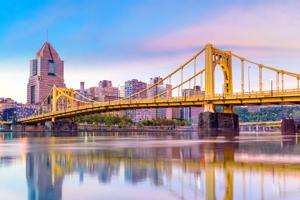Pittsburgh Water and Sewer Authority proposed rate hikes face uncertainty, analysis finds

(The Center Square) – Pittsburgh’s three-pronged plan to adjust water and sewer rates and implement a stormwater fee in 2022 faces an uncertain future as it awaits regulatory approval, an analysis published this week finds.
The Allegheny Institute for Public Policy published a review of the Pittsburgh Water and Sewer Authority’s proposed changes to its rate structure to generate an additional $33.6 million in revenues over the next two years. The analysis noted that the PUC’s hesitancy to approve rate hikes from other water providers may serve as a “harbinger” for the proposal’s chances.
“The PWSA’s extended history of failure must be resolved and increased rates may be necessary to fund the many critical infrastructure projects,” said Elizabeth Miller, a research associate for the institute. “The PUC’s determination will need to balance the demand for the required infrastructure repairs with customer concerns regarding rising rates.”
In 2017, the General Assembly placed the PWSA under the oversight of the Pennsylvania Public Utility Commission after decades of mismanagement and infrastructure deterioration came to a head.
Fixing the city’s crumbling lead pipes and tackling rising floodwaters while maintaining existing services, however, has pushed the PSWA’s debt load past $1 billion, the analysis finds. Revenues in 2020, likely hampered by the pandemic, came in $261,000 short of expenses.
The authority asked the PUC to approve a two-year rate hike in 2019 that would have generated $56.4 million in additional revenue and increased consumers’ bills by 19% in the first year and 6.6% in the second year. The regulatory agency allowed only a one-year 4% hike that totaled $19 million.
In its latest plan, the PWSA wants to raise water rates by 10% in 2022 and 9.3% in 2023 while concurrently lowering sewer rates by 10.6% and 11.4%. The authority would also levy a stormwater service fee that could generate nearly $24 million in operating revenues through 2023, according to Miller’s analysis.
The fee will be charged based on the size of customers’ properties and help address ongoing flooding issues throughout the city.
The PUC has until Jan. 12, 2022, to rule on the plan.
The PWSA already charges the second highest water and sewer rates in the Pittsburgh region, according to Miller’s analysis, coming second only to Pennsylvania American Water Company customers in Mount Oliver Borough. The latter pay an average monthly bill of $77.33 compared to the $75.56 PWSA customers pay.
The PUC recently cut Pennsylvania American Water Company’s $138.6 million two-year increase down to just $70.5 million.
But it’s not only the PUC that could limit rate increases. State Rep. Ed Gainey, the city’s Democratic nominee for mayor, told PublicSource in April “we can’t continue to just put the rate hikes on the back of our residents and think that we’re going to make progress.”
“It’s not like by raising the rates we’ve gotten any better,” he said. “The one thing with PWSA that I’ve always said is that they haven’t been transparent when it comes to exactly what the problem is in the budget.”
He said a “serious financial audit” would go a long way toward understanding the issue better.
“When I get there, I’ll be able to take a deeper look into it,” he said.
Disclaimer: This content is distributed by The Center Square
